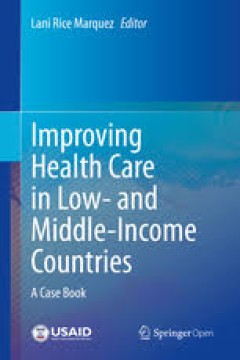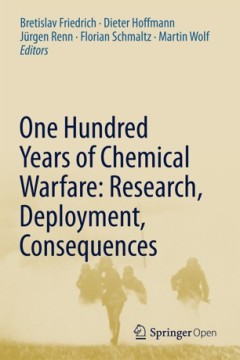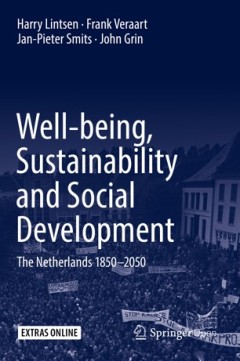Filter by

Improving health Care in low- and middle-income countries
This open access book is a collection of 12 case studies capturing decades of experience improving health care and outcomes in low- and middle-income countries. Each case study is written by healthcare managers and providers who have implemented health improvement projects using quality improvement methodology, with analysis from global health experts on the practical application of improvement…
- Edition
- -
- ISBN/ISSN
- 9783030431129
- Collation
- -
- Series Title
- -
- Call Number
- 610.73072 IMP i

Long history, deep time. Deepening histories of place
The vast shape-shifting continent of Australia enables us to take a long view of history. We consider ways to cross the great divide between the deep past and the present. Australia’s human past is not a short past, so we need to enlarge the scale and scope of history beyond 1788. In ways not so distant, these deeper times happened in the same places where we walk today. Yet, they were not th…
- Edition
- -
- ISBN/ISSN
- 9781925022520
- Collation
- 241 p.; 22 cm.
- Series Title
- -
- Call Number
- 994.0049915 LON l

One hundred years of chemical warfare: research, deployment, consequences
On April 22, 1915, the German military released 150 tons of chlorine gas at Ypres, Belgium. Carried by a long-awaited wind, the chlorine cloud passed within a few minutes through the British and French trenches, leaving behind at least 1,000 dead and 4,000 injured. This chemical attack, which amounted to the first use of a weapon of mass destruction, marks a turning point in world history. The …
- Edition
- -
- ISBN/ISSN
- 9783319516646
- Collation
- xi, 408p. : ill.
- Series Title
- -
- Call Number
- 355 ONE o

Tajkistan: a political and social history
This book is a historical study of the Tajiks in Central Asia from the ancient times to the post-Soviet period. For millennia, these descendants of the original Aryan settlers were part of many different empires set up by Greek, Arab, Turkic and Russian invaders, as well as their own, most notably during the Middle Ages. The emergence of the modern state of Tajikistan began after 1917 under Sov…
- Edition
- -
- ISBN/ISSN
- 9781925021165
- Collation
- -
- Series Title
- -
- Call Number
- 958.6086 NOU t

State of ambiguity
Cuba's first republican era (1902–1959) is principally understood in terms of its failures and discontinuities, its first three decades and the overthrow of Machado seen at best as a prologue to the "real" revolution of 1959. This book brings together scholars from North America, Cuba, and Spain to challenge this narrative, presenting republican Cuba instead as a time of meaningful engagement…
- Edition
- -
- ISBN/ISSN
- 9780822356301
- Collation
- 376 p.; 23 cm.
- Series Title
- -
- Call Number
- 972.9105 STA s

Well-being, Sustainability and Social Development : The Netherlands 1850–2050
This open access book examines more than two centuries of societal development using novel historical and statistical approaches. It applies the well-being monitor developed by Statistics Netherlands that has been endorsed by a significant part of the international, statistical community. It features The Netherlands as a case study, which is an especially interesting example; although it wa…
- Edition
- -
- ISBN/ISSN
- 9783319766966
- Collation
- xxxii, 572p. : ill.
- Series Title
- -
- Call Number
- 113 WEL w

Animals and the shaping of modern medicine : one health and its histories
This book breaks new ground by situating animals and their diseases at the very heart of modern medicine. In demonstrating their historical significance as subjects and shapers of medicine, it offers important insights into past animal lives, and reveals that what we think of as ‘human’ medicine was in fact deeply zoological. Each chapter analyses an important episode in which animals ch…
- Edition
- -
- ISBN/ISSN
- 9783319643373
- Collation
- xvii, 280p. : ill.
- Series Title
- -
- Call Number
- 509 ANI a

Central Asian sources and Central Asian research
In October 2014 about thirty scholars from Asia and Europe came together for a conference to discuss different kinds of sources for the research on Central Asia. From museum collections and ancient manuscripts to modern newspapers and pulp fiction and the wind horses flying against the blue sky of Mongolia there was a wide range of topics. Modern data processing and data management and the prob…
- Edition
- -
- ISBN/ISSN
- 9783863952723
- Collation
- 228 p.
- Series Title
- -
- Call Number
- 491.8 REC c

Governing New Guinea; an oral history of Papuan administrators, 1950-1990
This is the first time that indigenous Papuan administrators share with an international public their experiences governing their country. These administrators were the brokers of development. After graduating from the School for Indigenous Administrators (OSIBA) they served in the Dutch administration until 1962. The period 1962-1969 stands out as turbulent and dangerous, and for many curtaile…
- Edition
- -
- ISBN/ISSN
- 9789067183932
- Collation
- x, 358 p.; 22 cm.
- Series Title
- KONINKLIJK INSTITUUTVOOR TAAL-, LAND- EN VOLKENKUNDE
- Call Number
- 995.304 GOV g

Aural history
Aural History is an anti-memoir memoir of encountering devastating grief that uses experimental storytelling to recreate the winding, fractured path of loss and transformation.Written by a thirty-something psychotherapist and queer theorist, Aural History is structured as a sequence of three sections that each use different narrative styles to represent a distinctive stage in the protagonist’…
- Edition
- -
- ISBN/ISSN
- 9781950192670
- Collation
- 324 p.; 22 cm.
- Series Title
- -
- Call Number
- 155.413 ASh a
 Computer Science, Information & General Works
Computer Science, Information & General Works  Philosophy & Psychology
Philosophy & Psychology  Religion
Religion  Social Sciences
Social Sciences  Language
Language  Pure Science
Pure Science  Applied Sciences
Applied Sciences  Art & Recreation
Art & Recreation  Literature
Literature  History & Geography
History & Geography